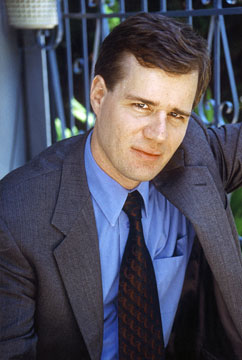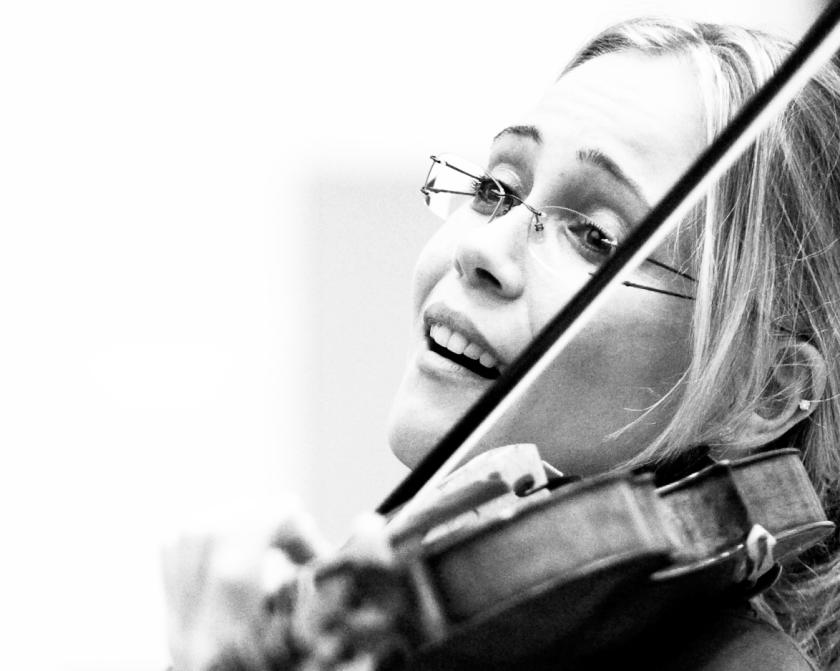Who knew that the wisdom of crowds could be quite so fickle or so fallible? This superb recital by the American violinist Leila Josefowicz and pianist John Novacek was played in front of a Wigmore Hall only about a quarter-full. Josefowicz, returning to the Wigmore after five years, wasn't ruffled in the slightest. After all, a bigger date awaits her in just one week's time: next Thursday she is to give the world premiere of a new work by John Adams with the New York Philharmonic, for which Avery Fisher Hall is already close to sell-out.
The duo carried off this London recital with huge panache and professional energy. Theirs has become a seasoned and secure musical partnership; their ways of working together are now completely attuned. She has the freedom to be impulsive, explosive, coquettish, to go anywhere. He can support, change the backdrop, challenge and provoke her. It was a compelling performance from first note to last.
 This musical partnership also took the listener straight to the heart of each composer's idiom. From the opening work by Manuel de Falla, Josefowicz captivated with the breadth of her range of tonal colour. Serenity then came in Messiaen's Thème et Variations, where the violinist brought magic to the half-lights of the closing section, with its final journey to the borders of silence.
This musical partnership also took the listener straight to the heart of each composer's idiom. From the opening work by Manuel de Falla, Josefowicz captivated with the breadth of her range of tonal colour. Serenity then came in Messiaen's Thème et Variations, where the violinist brought magic to the half-lights of the closing section, with its final journey to the borders of silence.
Nothing is ever bland or predictable in playing like this. What is most remarkable is that Josefowicz can play with such impetuousness; one has the sense it shouldn't really be working at all, and yet it always does. In the Schumann A Minor Sonata's opening movement she would take one phrase and caress and charm with it, then put a huge balloon into the next one and remove all sense of proportion from it, and then aggress the next one and kick it down the stairs. This should – and normally would – come across as affected or mannered, and yet it never does. When every moment is lived with total conviction, then every expressive choice justifies itself. In the Schumann, Novacek (pictured above) was also very subtle with the sustain pedal, adept at signalling changes of mood with the slightest of caesuras in the line.
The second half brought Conversio, a 1994 work by the Estonian composer Erkki-Sven Tüür, and John Adams' Road Movies, also from the mid-1990's. In the Tüür, both players demonstrated that they don't just know the work's irregular and constantly evolving rhythmic patterns, they can also live with them and in them, and make them dance and sing.
In the Adams, the performers' tricky task is to find the humour and the variety in music which wears its machine-like repetitiveness like a badge of pride. Josefowicz and Novacek found and conveyed exactly the right echoes and shimmers of both Bartok and bluegrass. Road Movies has one of those annoying anti-endings, where the piece simply runs out of road. So, as the single encore, the pair gave an arrangement of Charlie Chaplin's Smile – by Claus Ogermann? – in which every flautando harmonic glimmered with beauty. What a wonderful evening, enjoyed by far too few people.













Add comment